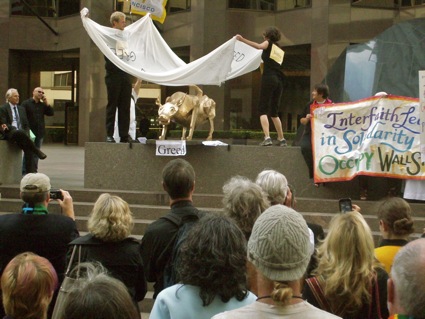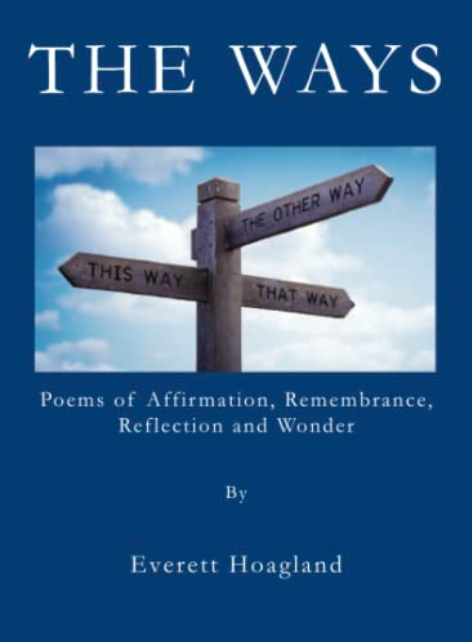Everett Hoagland and I went down to the Interfaith Clergy Solidarity with Occupy Wall Street San Francisco today. We walked to various banks where two dancers, labeled “Equality” and “Justice,” set up a golden calf, representing the idolatry of money, and ritually covered the idol with a cloth:

A poem started bubbling up for Everett, so he dropped out of the march to do some writing. I kept walking. There were something on the order of 150 to 200 clergy and other faith leaders marching; I counted ten Unitarian Universalist ministers, and half a dozen of our seminarians. TV news coverage of today’s event: Rev. Jeremiah Kalendae of the Unitarian Unviersalist church in San Francisco is quoted in the text portion of Channel 5’s (CBS) coverage. Link to ABC’s live coverage. Radio coverage on KQED (story begins 0:37).
In the afternoon, Everett and I went over to Occupy Oakland, and spent an hour or two there, talking to some people, and just trying to lend our support. I was impressed that the occupiers have a children’s program during the day, a library, classes and committee meetings, and they have started a garden:

The city of Oakland keeps threatening to arrest all the occupiers — nevertheless, with accommodations for children, and a garden, they are planning for the long term. More on the Oakland occupation: From KALW today, “A Day in the Life of Occupy Oakland” (audio with transcript).



